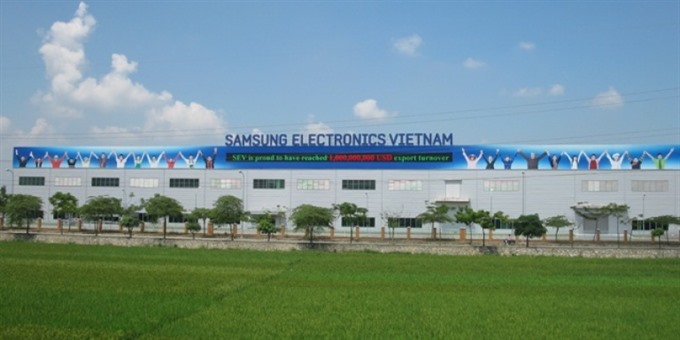 Economy
Economy

Enterprises with foreign-owned capital (even one per cent) need to register distribution rights before trading goods purchased from other Vietnamese organisations or imported into the country.
 |
Enterprises with foreign-owned capital (even one per cent) need to register distribution rights before trading goods purchased from other Vietnamese organisations or imported into the country.
Distribution is deemed one of the toughest rights to register among those related to goods purchase and sales activities, and FDI enterprises incur losses if they are not allowed to trade goods in Việt Nam.
PLF Law Firm shares some insights on how FDI enterprises can deal with this obstacle.
Benefits of distribution right
Undertaking registration for distribution right permits FDI enterprises to conduct activities related to wholesale, retail, purchase and sale agency, as well as commercial franchises.
Enterprises with 100 per cent Vietnamese capital have this right by default. Enterprises with foreign-owned capital (even one per cent) must register the distribution right as stipulated in Article 5 of Circular No. 08/2013/TT-BCT, dated April 22, 2013 (Circular 08).
Are FDI enterprises with registered import rights allowed to sell imported goods in Việt Nam?
Clause 4, Article 4 of Circular 08, regulates that:
“Enterprises with foreign-owned capital that are already licensed to import but not yet licensed for the right to distribute are entitled to directly sell imported goods to Vietnamese traders who have the right to export or distribute such goods; but not entitled to organise or participate in the network of goods distribution in Việt Nam, unless otherwise provided by the law of Việt Nam or international treaties to which the Socialist Republic of Việt Nam is a contracting party.”
In other words, FDI enterprises without distribution rights can only introduce goods to the local market through agencies, incurring increased costs.
Why do FDI enterprises meet obstacles in registering distribution rights?
Viet Nam has adopted policies designed to prevent the rampant import of foreign goods and to protect the domestic market. On the other hand, the policy also encourages FDI enterprises to invest their capital and technology in domestic production for the growth of the economy.
If FDI enterprises invest in manufacturing goods in Viet Nam, they are entitled to sell such goods in Viet Nam without having to register for the distribution right.
What steps should FDI enterprises take to register?
1) FDI enterprises should specify which goods will actually be introduced into the Việt Nam market and avoid registering “supernumerary” or “reserved” goods that are not going to be distributed in the near future.
The law requires such enterprises to provide documents proving “financial capacity” and “experience.” However, the law does not clarify which documents. In practice, the licensing authority usually assesses the “experience” element by forming its own opinion, which causes many difficulties for FDI enterprises and even for professional consultancy units.
Based on our experience, we recognize some documents which are approved by the competent authority as follows:
For “financial capacity” they include bank statements, audited financial reports, loans, commitment to contribute capital from investors, etc.
Regarding “experience”, this can be documented through PO (official Purchase Order), sales contract, service contract between investors and clients, business licence with business sectors of the intended goods, evidence verifying working times (in case of individuals).
2) Because Việt Nam is a member or signatory of international organisations and treaties, such as WTO, AFTA and EVFTA, the explanation must be compliant with domestic and international regulations.
This is a fairly complicated task. If FDI enterprises have not had any experience in this task, they should seek professional support.
3) As regulated, it takes 30 business days to register distribution rights.
Although the application for distribution right is submitted to the local authority (Department of Industry and Trade, management board of industrial parks, provincial department of planning and investment), it is approved by the Ministry of Industry and Trade and other ministries. The application will be transferred to several authorities, therefore the actual duration can last two to three months or even longer if there is any mistake. FDI enterprises, therefore, should be patient and plan early registration.
4) All documents granted by foreign authorities should be authenticated in the country of which the investor is a citizen. Many dossiers are rejected because of not being authenticated in full.
Some main documents to be authenticated include company charters, incorporation certificates of foreign parent company, audited financial reports of foreign investors or bank statements, and documents related to the representative of the owner.
What sanctions apply to FDI enterprises violating the registration requirement?
Some FDI enterprises are not aware of their violations because they do not know this regulation.
A fine of between VNĐ30,000,000 and VNĐ40,000,000 can be imposed with additional penalties that “deprive the right to use enterprise’s business licence or its licence for setting a retail establishment from one month to six months, or suspend its operations from one month to six months” as prescribed in Article 89 of Decree No. 185/2013/NĐ-CP on November 15, 2013. — PLF LAW FIRM




